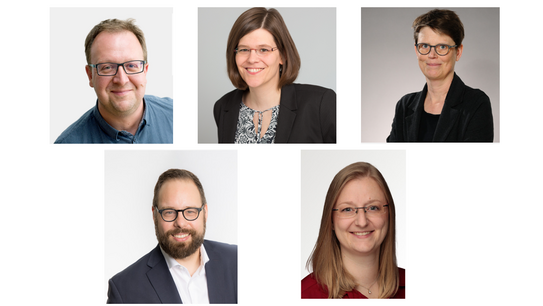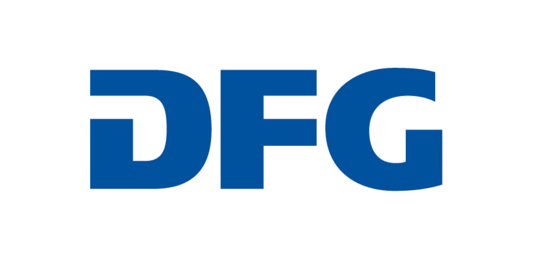Centres for Advanced Studies in Humanities and Social Sciences
The format of Centres for Advanced Studies in Humanities and Social Sciences is specifically designed for researchers working in the humanities and social sciences. Here, a group of usually 2 to 3 scientists researches for up to eight (4+4) years on a common topic that bundles local expertise, but at the same time addresses open and experimental questions. The format requires good networking of the participants in advance as well as long-term and strategic planning.
Requirements and characteristics of the format

In contrast to research units, a local team of 2 to 3 scientists is at the core of a Centre for Advanced Studies in Humanities and Social Sciences. Instead of collaborative work on subprojects, an obligatory fellow program is applied for domestic and foreign guests, who collaborate with the group in a collegial manner for up to 2 years each.
Application procedure and qualified applicants
The application process is two-stage, with review by a panel involving the review boards. Unlike research units, Centres for Advanced Studies in Humanities and Social Sciences are not reviewed during the outline phase. The review criteria are based on those of a DFG individual research grant, but in addition, the overall scientific concept, international visibility, and the fellow program must be convincing.
Centres for Advanced Studies in Humanities and Social Sciences are aimed exclusively at experienced researchers in the humanities and social sciences. They are represented by a spokesperson who represents the group externally and acts as an interface to the DFG. Junior researchers can be integrated as junior fellows if they are suitable.
Outlines for Centres for Advanced Studies in Humanities and Social Sciences can only be submitted within the framework of an annual call for proposals, the deadline is usually in autumn.
A list of all Centres for Advanced Studies in Humanities and Social Sciences funded by the DFG to date can be found at the DFG website.
Services and contact persons
The Rectorate offers comprehensive financial support for the application of DFG Research Units (Kolleg-FOR). This support includes the preparation of a project outline as well as the preparation of a full proposal if funding is not possible via chair or faculty funds. In the outline phase, funding for a research assistant position (50%) can be provided for up to 6 months upon application. In the full proposal phase, a research assistant position (50%) can also be funded for up to 12 months upon request. This is based on the current DFG staffing rates (doctoral candidate and comparable). Prerequisites for funding are the assumption of spokespersonship, a significant participation of TU Dortmund University in the network and a concrete concept in the outline phase. The application forms are available on request from the funding counselling service.
The Rectorate provides support as early as the first step in brainstorming and forming a consortium for a DFG collaborative project. Contact person in the Rectorate is Dr. Gunter Friedrich.
The team member of the Grants Services responsible for your department will be happy to assist you in submitting a proposal to the DFG. The range of services offered by Research Support Services includes:
- coordination of contact persons within the university administration
- annotated templates and guidelines
- information about cross-sectional topics such as research data management, support for early career researchers, and equal opportunities
- comprehensive advice in all phases of the application process
- strategic feedback on your proposal.








